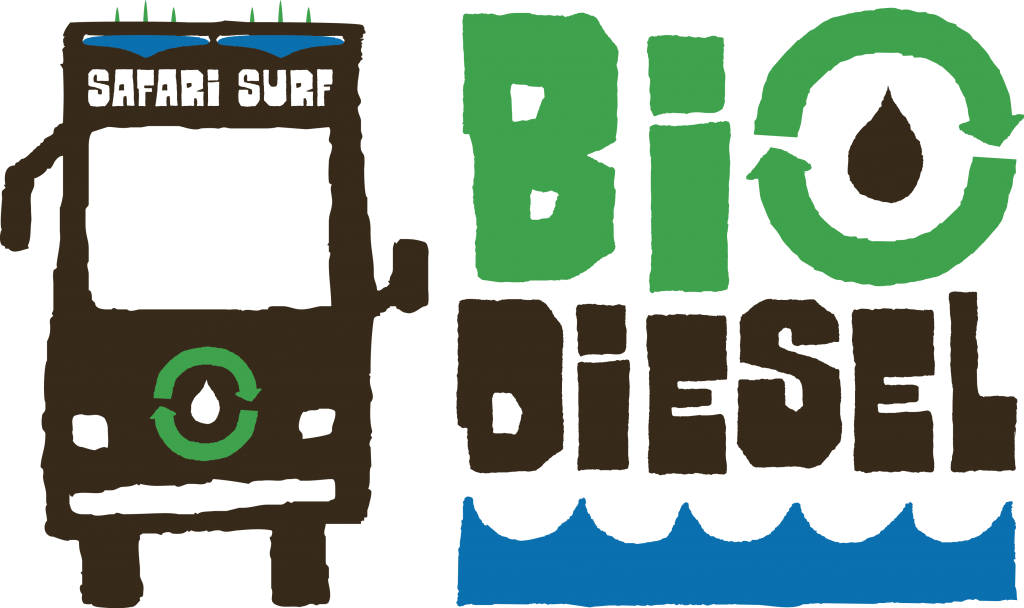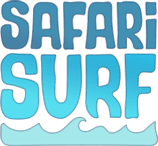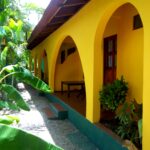I launched our fundraising campaign for the Innovative Biodiesel Project on IndieGogo last week and we have already raised 56% of our $5,000 goal!
Please watch the video below and if you believe in the project, surf over to our campaign page to make a pledge and share it with your friends, family and coworkers using the sharing tools right below the video: http://igg.me/p/287334/x/1838244
If you would like to learn more about the project, the following text is from our campaign page which contains more detailed information:
Pura Vida!
Pura vida is more than an expression in Nosara, its a way of life; a way of life that we are determined to preserve.
Thanks for checking out our campaign page for the Innovative Biodiesel Project, I’m Carl Kish, the Sustainability Director for Safari Surf School and the Hotel Casa Tucan in blissful Nosara, Costa Rica. After implementing community development initiatives in surf tourism destinations for over a year, I’ve developed a keen interest in this culturally rich surf and yoga community, nestled in the lush jungle of the Ostional Wildlife Refuge. During my research for alternative fuels in Costa Rica as a consultant for Safari Surf last May, I read about Ryan King, a biologist and college instructor who is an expert in small-scale biodiesel production and has spent over a decade researching and writing articles about sustainability and environmental issues. Ryan’s article about his small-scale biodiesel processing plant in Monteverde, Costa Rica – where he supplied a school’s entire fleet of buses with biodiesel by collecting used cooking grease (waste vegetable oil, or WVO) from local restaurants – inspired me to spark a discussion about setting up a similar system in Nosara. Six months later and our idea has finally come to fruition. Over the course of three weeks, Ryan and I aim to create an innovative way to produce biodiesel at Safari Surf’s headquarters — the soon to be Sustainable Surf Tourism Certified, Hotel Casa Tucan — starting at the end of January. Converting WVO into biodiesel has been around for quite some time, however none of the established models have beenenergy independent, carbon negative, and closed-loop (zero waste). Safari Surf and Casa Tucan have been generous enough to supply Ryan and I with accommodations and transportation within the country to get supplies, but we need your help to make this unique, self-sustaining biodiesel system a reality.
Our fundraising goal is budgeted for the construction of the shelter, the biodiesel system and the biochar system, as well as researching and testing the use of homemade reagents in the conversion process as a substitute for imported, toxic and expensive chemicals such as methanol. With the combined usage of the “greasercycle,” a stationary bicycle connected to a pump which mixes the fuel as you pedal, as well as a biochar heat transfer system, this innovative model can run completely off-grid. Considering how much the power goes out in Nosara, especially in the rainy season, along with limited outside access during emergency situations such as seasonal flooding or earthquakes, having a fuel source that is independent from imported resources and power could potentially be a lifesaver. Your contributions will not only help Nosara, but also the larger cause for finding a small-scale sustainable fuel solution. Once the research has been completed and the model is tested, we will make this process completely transparent and available free of charge. Our hope is that communities and biodiesel producers all over the world will experiment and enhance this model even more. The project’s focus will be driven towards biofuel production with positive ecological externalities, and take advantage of open source hardware and collaborative design. The support provided by donations will allow us to create a replicable, one of a kind biodiesel system as well as confirm the purity of our homemade reagents and final products with full laboratory analysis. We envision this being a catalyst for change in sustainable living and we hope it will inspire others to implement, experiment, and improve on this model.

Greasy Gifts:
Help us achieve our dream and you won’t regrease it!
Our fundraising goal is budgeted for:
- Constructing the system’s shelter, which will elevate it above the floodplain and protect it from the elements. Where possible, we will repurpose as many building materials from our local landfill to cut down on costs and our impact, but we will need to purchase some new items for critical parts of the structure. Ryan and I will be doing most of the labor, but we will be seeking help (where appropriate) from volunteers in the community as well as voluntourists.
- Researching and testing designs for the grease-pump-bicycle and the biochar-heat-transfer systems as well as investigating the chemistry of ethanol fermentation, distillation, and purification for biodiesel production. Methanol prices have increased globally, and biodiesel producers would benefit from our ethanol research. To our knowledge, no biodiesel producers have openly shared the proper chemical analysis of biodiesel produced by non-industrial (homemade) reagents. Thorough chemical analysis is expensive but crucial to biodiesel production. A substantial portion of the funding we seek will be used to pay for laboratory testing, ensuring that other biodiesel producers will be confident to adopt our innovative approach.
- Airfare, accommodation and transportation are being generously provided by Safari Surf and Casa Tucan.
Support our cause and we’ll send you something special in return:
Check out the “Perks” sidebar to the right of this page. For the $3,000 & $5,000 perks, please refer to the Sustainable Surfer Package details on Safari Surf’s website.
If we are unable to reach our goal, any funds we accumulate will still go to where they are needed, which is the bare minimum materials/resources necessary to get this project off the ground, which is to literally to build a foundation that will elevate the processing plant off the ground to protect it from flood damage. Once we have a shelter to protect the system from the elements, then we can allocate the rest of our funds to research and the actual system itself.
“I Heard It Through The Greasevine”
Help spread the word so we can reach our goal!
We understand if you are unable to contribute, we greatly appreciate your interest and hope that if you believe in the positive scope of the Innovative Biodiesel Project, you will support us through another medium. Please post our project to all your social media outlets, email our project link to friends and family and ask them to spread the word, talk to your co-workers about it etc. Anything will help. Thank you!
Greastory:
History of the project and team members’ stories.
Carl Kish:
Sustainability Director for Safari Surf School & Hotel Casa Tucan.
My interest in alternative fuel was sparked when I heard about the Greasebus ski shuttle in Portland, Oregon, which is run entirely on waste vegetable oil (WVO). This fascination traveled with me when I studied abroad in New Zealand, and after many hours of research and trials, I was able to help initiate the conversion of Queenstown Resort College’s shuttle van to biodiesel (I also wrote a business plan for setting up a Greasebus service in the alpine town for a term paper). I have a passion for surfing, the outdoors, and helping people, which is why I love working on projects such as this. Beginning with my senior year internship with the Center for Surf Research (CSR) at San Diego State University, I began traveling and helping surf tourism destinations to become Sustainable Surf Tourism Certified. The inspiration for this project first started when I was researching biodiesel in Fiji as a consultant for Tavarua last January, and I discovered that coconut oil processed into biodiesel was an emerging market in Fiji. A year later, the small heart-shaped island in the Pacific is commencing trials on running their lifeblood (massive generators) on biodiesel.
Safari Surf and Casa Tucan joined the CSR’s Sustainable Surf Tourism Certification Program in late April and I was sent there for three weeks as a consultant to develop their Sustainability Management System and outline a path to certification. As I was researching alternative fuel resources in Costa Rica, among a myriad of other topics, I came across Ryan King’s article about his small-scale biodiesel processing plant in Monteverde, Costa Rica, where he was able to supply a local school’s entire fleet of buses with biodiesel after collecting used cooking grease (waste vegetable oil – WVO) from local restaurants. His story beckoned me to at least see if it was possible to implement something similar in Nosara. After months of discussion, going back and forth about his research and various logistical matters, we decided on a place and a time for this project derived purely from passion to launch. Considering the current biodiesel situation in Nosara, where local restaurants can pay to transport their WVO 500 km round trip to a large biodiesel processing plant in Cartago to trade 1 liter of biodiesel for 4 liters of WVO, the monetary cost and carbon footprint of this process counteracts the environmental benefits of using biodiesel. Thus, this new locally sourced system will be better for the community economically.
After my initial stint in Nosara, I have been leading the sustainability efforts for Safari Surf from San Diego since June, as one of the owners, Tim Marsh, lives here along with our Digital Media Director, Greg Gibson. I’m extremely passionate about sustainability management in how it results in smart, ethical business practices – it just makes more sense, its the natural evolution of how an operation should well, operate. Managing every aspect of our business so that it provides the greatest positive impact on the community and the environment, is an incredibly rewarding job and I’m that much more fortunate to be given this freedom to seek out and initiate projects such as this one. Housing the system at the Hotel Casa Tucan, will provide biodiesel fuel for our shuttle van and third party shuttle vans, which transport guests from major airports to Nosara. Power outages are a normal occurrence in Nosara and back-up generators consume mass amounts of fuel. In emergency situations (recent earthquakes, annual flooding), when access to Nosara is severely inhibited, as it is a small community with dirt roads about an hour from the nearest city, the model we are developing can serve as lifesaver with local access to fuel for the generators. If this project is successfully replicated, the community’s dependence on imported fossil fuels would drop drastically.
Ryan King:
Teacher, environmental science writer.
I began researching biofuels and local resource production after several years of studying and publishing reports in global change science. While working as a naturalist guide and school teacher in Costa Rica, I realized that the majority of ecotourist destinations provided very few environmental restoration programs appropriate for the extreme conditions of modern ecological decline and economic downturn.
My personal interest with small-scale biodiesel and biochar systems has been geared towards development of integrated energy systems that provide an environmentally beneficial external impact. This may be accomplished by using locally rendered reagents, common materials and equipment, and accounting for all side streams of biofuel production. Additionally, these designs should be able to function without grid-tied electricity or energy derived from fossil fuels.
My articles are most often published on the www.mongabay.com conservation website and have been featured by the UN Convention on Biological Diversity, The Post Carbon Institute’s Energy Bulletin, Biochar-International.org, Earthknowledge.net, Ecoearth.info, Dominical Days, and many others.
Safari Surf School, Hotel Casa Tucan & Nosara:
Safari Surf School has been sharing its “stoke” and passion for surfing for over 13 years and is still going strong! We are a socially and environmentally conscious, sustainability-driven business that enjoys bringing two different cultures together for one amazing experience full of new friendships and a lifetime of memories for our guests.
You will obviously be thrust into the Latin culture and introduced to the incredible spirit and vibe that is “Pura Vida”…which translates to “Pure Life”. There is a reason that Costa Rica was voted one of the “Happiest” countries in the world and it is very evident when you meet and greet the local people. Our town of Nosara embodies all of what makes Costa Rica the most desirable place to visit on vacation. It’s like a journey back in time…where people wave at you as you pass by and greet you with a smile, always willing to help, where old cultural ways integrate seamlessly with the new “wave” of today’s younger generation.
The “other” culture that you will be immersed in while visiting us is the “Surf Culture”. This culture is really a mindset, a lifestyle and you will be living and breathing the entire time you are with us in Nosara. What makes Nosara and Safari Surf so attractive to people is that everything we do revolves around the art and passion that is wave riding! Our instructors are all very accomplished surfers with years of experience and training. They enjoy meeting new friends and making lasting friendships with all who come through our “doors”. Each instructor is extremely well-trained and educated in the art of teaching surfing, safety, lifeguard skills and first aid / first response.
Hotel Casa Tucan has been home to Safari Surf School clients since its inception in 2000. The Hotel Casa Tucan was one of the original hotels in the Playa Guiones area. In 2005, Safari Surf School, along with some surf school clients, purchased the Hotel Casa Tucan and slowly have refurbished and built a fantastically cozy slice of paradise just steps from one of the most beautiful beaches in all of Costa Rica. We hope to be achieve Sustainable Surf Tourism Certification by the Center for Surf Research and Sustainable Tourism Certification by the Costa Rican Tourism Board this May.
From our hotel Casa Tucan to our surf program, Safari Surf employs 99% local people who live and have families in Nosara. We strive for a sustainable existence in the community by educating, employing, and giving back to the local people.
Additional Resources
Greasology:
Turning grease into biodiesel explained.
- Collecting and filtering WVO
- Traditional Appleseed Biodiesel System
- Closed-Loop (Zero Waste):
- Wash Water & Algae: The wash water can be reused to grow algae (Chlorella vulgaris), and the algae can be used as a natural cleaning ingredient in our greywater irrigation systems. Greywater is toilet, shower and sink water (used water) that is filtered and repurposed to irrigate our gardens. We are pleased to be using a non-toxic cleaning ingredient (algae) as there is no risk of any contaminants seeping into the soil and reaching the ocean, which is huge relief since we are only a few hundred meters from the beach.
- Glycerine, a natural byproduct of making biodiesel can be used to make soap and since it is hygroscopic (absorbs moisture from the air), when mixed with water it can be poured on the dirt roads in Nosara to keep the dust down instead of using smelly and expensive molasses, which they currently use.
- Biochar can be used in our soils and heat generated from making the biochar can be used to heat our biodiesel systems so there is no power needed to do so.
- The “Greasercycle” or grease-pump-bicycle eliminates the need for power in the mixing process because a stationary bicycle is connected to a harbor freight pump, which pumps the WVO, ethanol and lye to mix them and make the biodiesel. This “Greasercycle” replaces the traditional 1.5 horsepower pump to make our system run completely off-grid with the addition of the biochar heating element.
Ryan King’s Work:
Published articles and Testimonials.
- “Biochar: A Brief History and Developing Future” on Mongabay.
- List of published articles on the Examiner.com
- “Biodiesel, Biochar & Biodiversity in Costa Rica — An Example of Small-Scale, Locally-Appropriate Action” published on The Oil Drum.
- Ryan on his work in Costa Rica on Sea Change Radio
- Civilization Shifting: self-organizing networks and open-source ventures in the age of global disruption: news.mongabay.com/2011/1115-king_opensource.html
- Climate and Culture : abrupt change and rapid response:http://news.mongabay.com/2012/0806-king-abrupt-climate-response.html
- Earth Systems Disruption:http://www.fedre.org/en/content/earth-systems-disruption-does-2011-indicate-new-normal-climate-chaos-and-conflict


